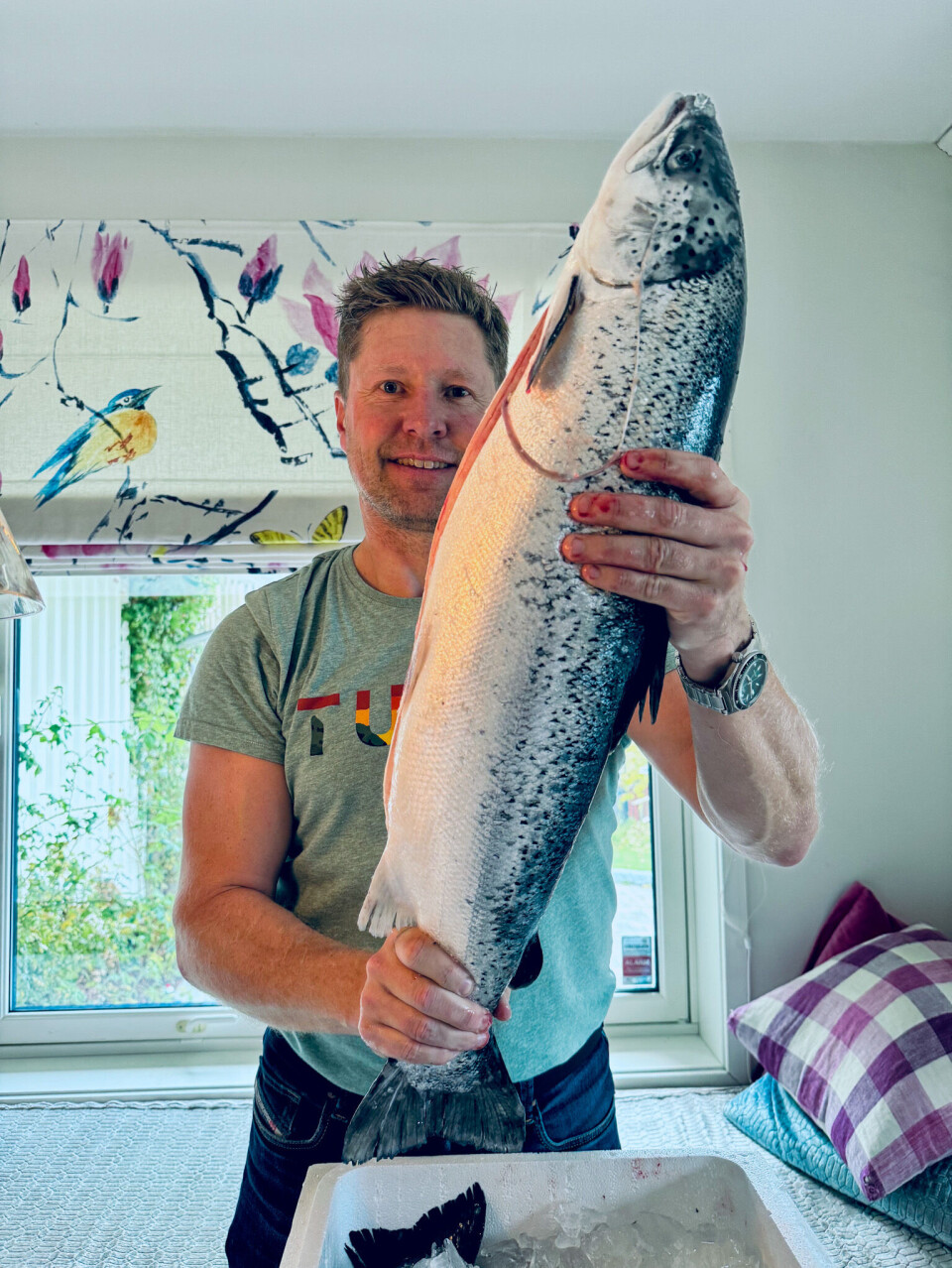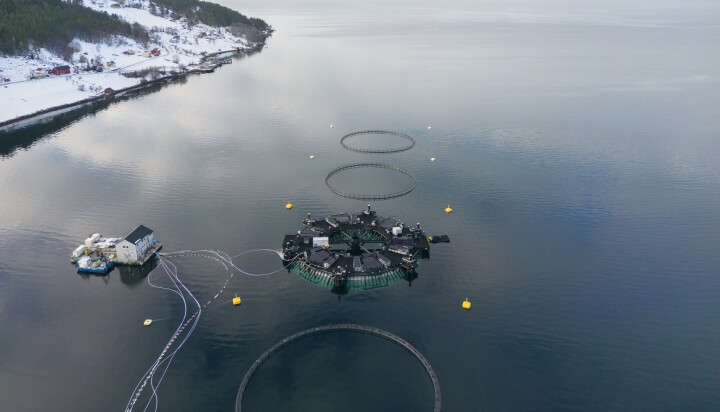
Very low mortality in the first full-scale test of Marine Donut
The 3kg-to-harvest growth trial in the floating closed facility from Bluegreen has been conducted at a SalMar site with good results.
The result after 100 days of production of 195,000 salmon from 3 kg until harvest was a mortality rate of 0.8%.
The Marine Donut, a floating closed containment system made of the thermoplastic HDPE (high-density polyethylene), has received a development permit through the Norwegian Directorate of Fisheries' scheme for innovation in aquaculture.
"According to the permit, we will conduct two full-scale tests with food fish, both with thorough documentation and evaluation of a number of technical and biological parameters," says the company behind the construction, Bluegreen.
In the first full-scale test, 195,000 salmon with an average weight of about 3 kg were placed in Marine Donut, distributed over three insertions. After 101 days, the facility was emptied, and the salmon were sent for slaughter.
During the test period, several production elements such as water quality, technical performance, fish health, and fish welfare have been closely monitored.
"This full-scale test has provided valuable data and experiences that will be crucial for the further development of this technology," says Geir Andresen, project manager at Bluegreen.
He has been responsible for the construction and commissioning of this first version of Marine Donut, which was delivered to SalMar in 2023. The facility is now operational at Seterneset outside Molde.
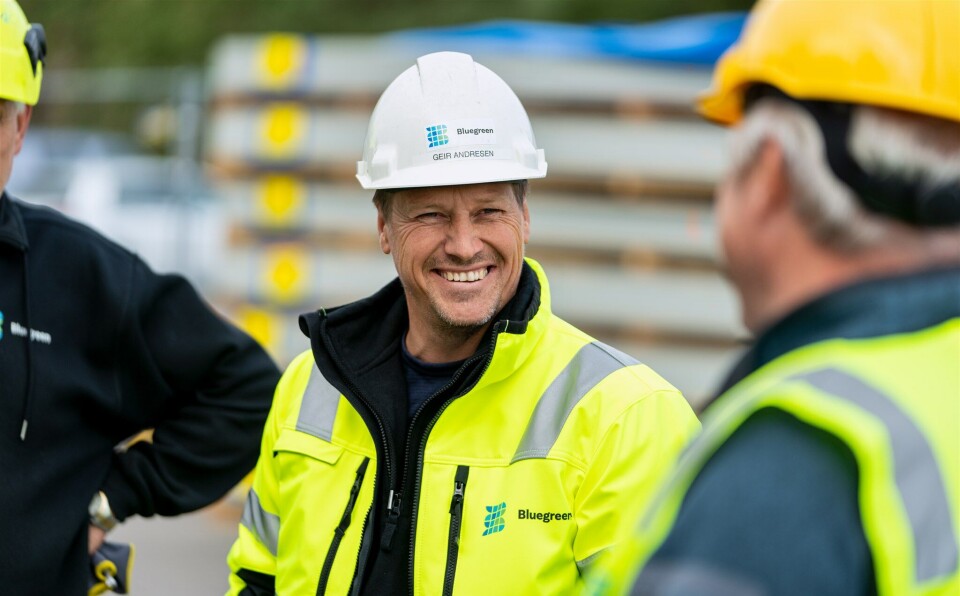
Midway results from the measurement programme
SalMar has prepared a midway report from the first production cycle that addresses several important parameters:
Water quality:
"Monitoring of water quality has shown good levels of oxygen, pH, salinity, and temperature. Some challenges related to measurements of turbidity (water clarity) were identified, but these are on the way to being resolved and have not affected the water quality in the pen," it states.
Fish health and welfare:
"Generally, the fish have had good health and low mortality, despite the fish carrying pancreatic disease (PD) into Marine Donut. Extensive monitoring of fish welfare has been conducted, including measurements of wounds, cataracts, and deformities, as well as analyses of gill health and stress levels (measured through faeces samples). All results show very good fish welfare," the report states.
Technical performance:
"Water exchange has worked well, but some adjustments have been necessary after discrepancies were registered between measured and calculated flow rates. The system has been improved along the way to optimise performance."
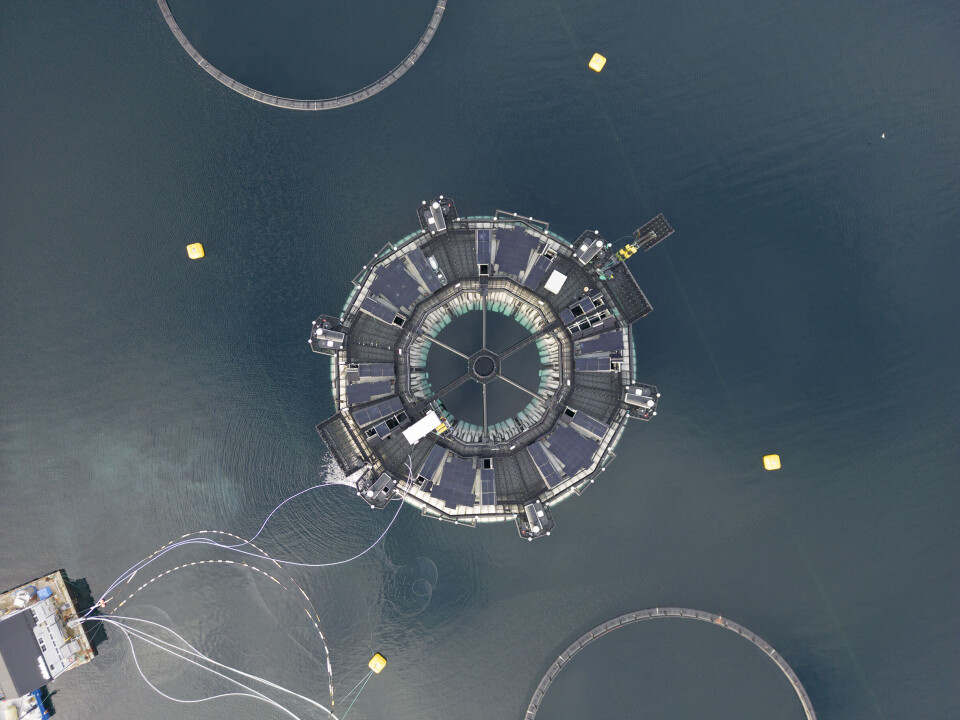
Emptying and fish delivery
In October, the facility was emptied of fish, and thus 195,000 salmon were sent for slaughter.
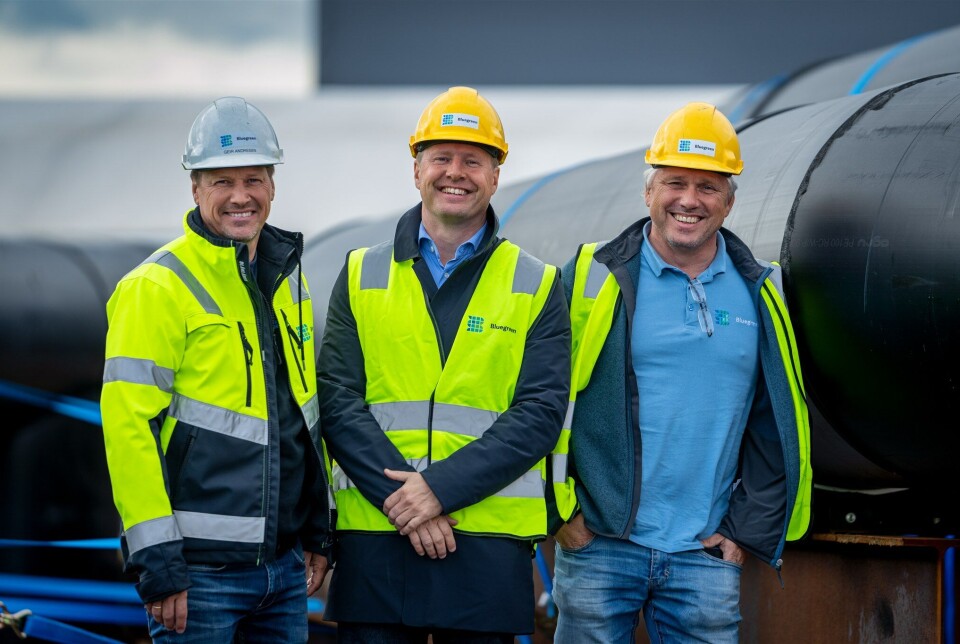
"The emptying went very well, and with a low stress factor for the fish. It is a major operation when approximately 1,000 tons of fish are to be delivered for the first time, so we were of course excited," says Andresen.
"We worked for a little over 24 hours, including preparations, and filled two wellboats," he adds.
According to Bluegreen, Marine Donut makes fish emptying easier and more gentle.
"The fish are gathered in a controlled manner before being sucked out to the wellboats. When the facility is to be emptied, we raise the facility by about 20% and connect to the wellboat. Then it is tilted by 4 degrees," explains Andresen.
He says this ensures good water flow and optimal conditions for the fish throughout the process. "At the same time, we gradually reduce the water volume to keep the fish's environment stable for as long as possible."
During the process, representatives from SalMar and Bluegreen were able to monitor and adjust parameters such as water flow and oxygen levels, as well as the tilting and raising of the facility.
"We chose to be extra cautious since this was the first time with full biomass," says Andresen. "Next time, we can probably do it in half the time."
The oxygen level in the water remained stable during the emptying, which they believe shows that the fish were not stressed.
Along with Norway, Bluegreen is looking at Canada as a potential market for the Marine Donut, and particularly British Columbia, where the Canadian federal government has decreed that open net pen salmon farming must end by mid-2029. Floating closed containment is a potential option for the continuance of fish farming in the sea in the province, although the federal government has not yet specified the requirements such technologies would have to meet.
